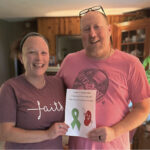Smoking is bad news.
It is the leading cause of avoidable death in the United States, accounting for nearly half-a-million deaths each year. Smoking also increases your risk of incurring a number of diabetes complications.
Everyone knows smoking causes lung cancer, and more people die of lung cancer each year in this country than of any other type of cancer. But did you know that smoking can affect the health of your heart, kidneys, eyes, nerves, muscles and joints and more?
Those with diabetes are three times more likely to die of cardiovascular disease, such as heart attack or stroke, but, add in smoking, and that risk multiplies. That’s because smoking:
- Decreases the amount of oxygen reaching tissues
- Increases cholesterol levels and the levels of some other fats in your blood
- Damages and constricts blood vessels
- Increases blood pressure
- Increases your blood sugar levels and decreases your body’s ability to use insulin, making it more difficult to control your diabetes
When blood vessels are constricted, the amount of blood circulating in arteries and veins is limited. This can lead to peripheral vascular disease, which can worsen foot ulcers and contribute to leg and foot infections. In addition, smokers with diabetes are at increased risk of developing nerve damage (diabetic neuropathy), kidney disease (diabetic nephropathy) and eye disease (diabetic retinopathy).
In addition to lung cancer, smoking may also contribute to mouth, throat and bladder cancers. Those who smoke are more susceptible to colds and respiratory infections. Smoking increases muscle and joint pain. Smoking also can cause impotence in men and miscarriage or stillbirth in pregnant women.
If you are a smoker, you know you should quit. The good news is, no matter how long you’ve smoked, your health will improve after you quit. Fortunately, there are many new medications and successful programs out there to help you quit smoking. If you smoke and are ready to quit, ask your friends and family members who have quit for advice or ask your doctor to refer you to a program for help.
Why is it so hard to quit? Simply put, nicotine is among the most addictive drugs. Smoking is not a habit or a lifestyle choice. It’s an addiction that, over time, changes brain chemistry. Nicotine has its effect by attaching to certain receptors in the brain, and, when you become a smoker, these receptors increase in number. If not regularly stimulated with nicotine, the increased receptors begin to make a person feel very unpleasant, a phenomenon known as withdrawal.
The first critical step is to make the decision to quit. It may help to set a firm, short-term quit date. In the meantime, get as much information as you can from your doctor or pharmacist about options to help you quit, including medications that can increase your chances of success by three to four times.
So, what can help you quit smoking?
Nicotine replacement therapy—The first line of treatment is nicotine replacement therapy, whether in the form of a gum, patch or inhaler, to help ease withdrawal symptoms. Nicotine replacement therapy is now available without a prescription in pharmacies. It is very safe, even for people with heart disease, pregnant women or teenagers, and it’s important when using it to know that you can use as much as is necessary to stem your particular cravings.
Oral medications—There are prescription medications that can help to decrease smoking cravings. Like any prescription drugs, they can have side effects and may not be right for everyone.
Lifestyle changes—Smoking often is associated with strong cues. So, as you move toward a quit date, you should get a sense of where and when you smoke and identify some strategies to bypass those situations. If you typically smoke after dinner, take a walk instead. Just as you may plan to adjust your food intake or insulin dosage, consider in advance how you will handle these situations. Enlist your family and friends in the effort. Make sure they understand how important it is for you to quit smoking and how hard it may be, and ask for their support. For some people, joining a support group, along with others who are also trying to quit, is helpful. Your doctor may have some information on groups or classes in your community.
Making the transition from smoker to nonsmoker is not easy, and you may have a lapse. If you do, give yourself a break. Don’t focus on the one cigarette you just had, but remember the hundreds you haven’t had since you quit. Manage your quitting plan much like you manage your diabetes—take it one day at a time.
Sandra Fowler, MD, practices at PinnacleHealth FamilyCare, Silver Spring.






